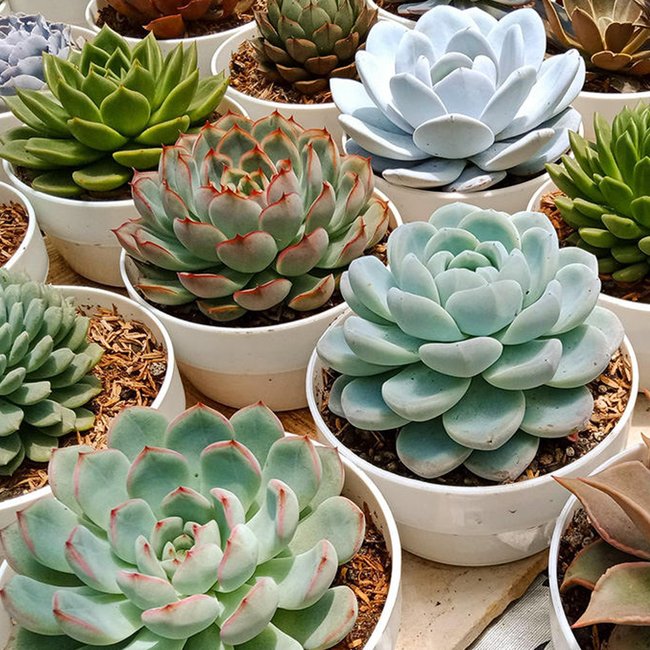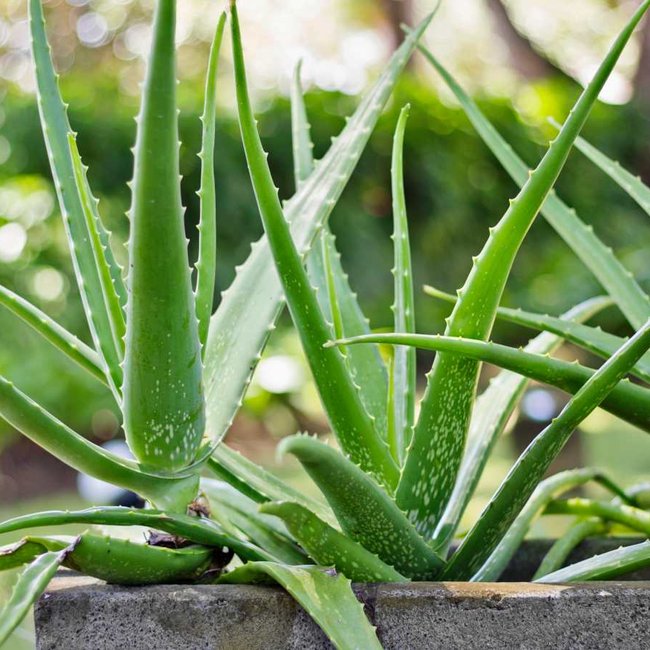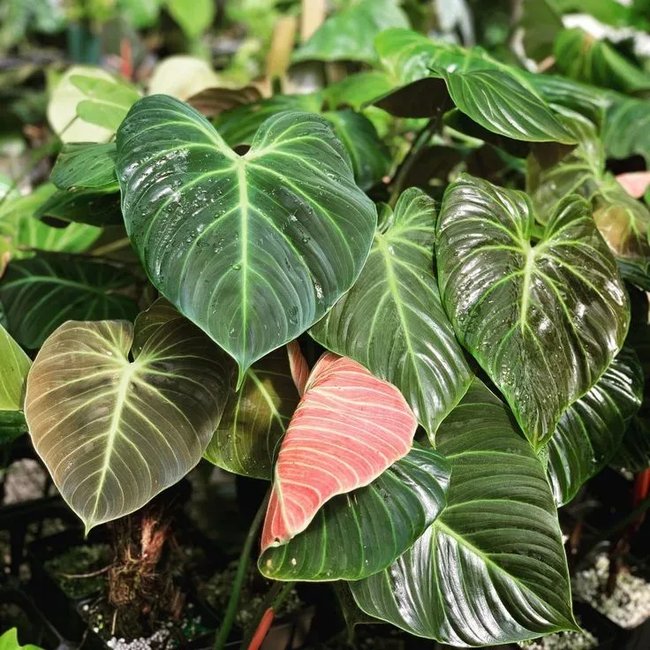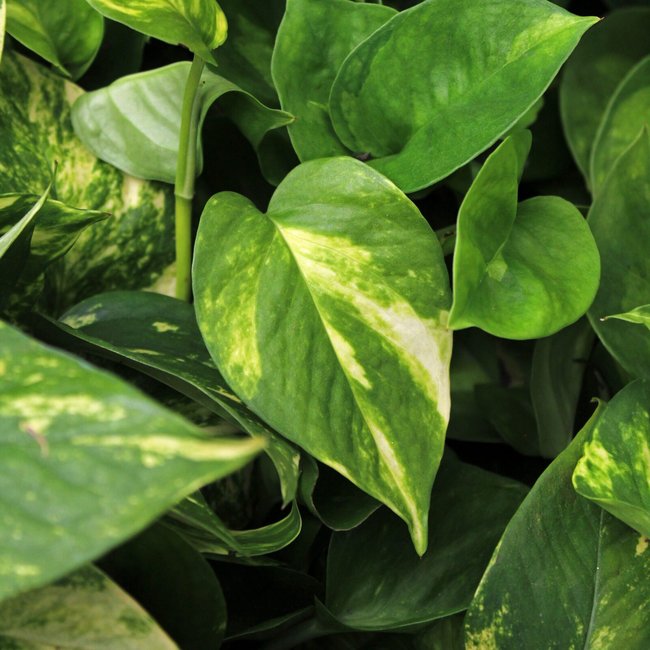Begonias
Begonia is a genus of perennial flowering plants in the family Begoniaceae. They are native to moist subtropical and tropical climates and are widely cultivated as ornamental plants for their bright and showy flowers.
Classification and Taxonomy
Begonia belongs to the family Begoniaceae, which is part of the order Cucurbitales. The genus contains over 1,800 species and is divided into several subgenera.
Description and Characteristics
Begonias are herbaceous plants with thick and fleshy stems, leaves, and flowers. They have large, showy flowers in shades of white, pink, red, and orange. The leaves are often marked with silver or bronze, and can be either smooth or hairy.
Distribution and Habitat
Begonias are native to tropical and subtropical climates. They are widely cultivated in temperate climates as well, and are often grown indoors as houseplants.
Ecology and Reproduction
Begonias are pollinated by bees, butterflies, and other insects. They reproduce by seeds, cuttings, and division.
Uses and Economic Importance
Begonias are widely cultivated as ornamental plants for their showy flowers. They are also used in medicine, as a source of food, and for their essential oils.
Conservation Status
Begonias are not threatened and are not listed on the IUCN Red List.
-
What are begonias?
Begonias are a type of flowering plant that belong to the family Begoniaceae. They are known for their colorful and showy blooms, which can range from bright reds and pinks to softer pastel shades. Begonias come in many different varieties and can be grown both indoors and outdoors.
-
How do I care for my begonias?
Begonias require moderate to bright, indirect sunlight and should be watered regularly, but not over-watered. They prefer well-draining soil and can benefit from occasional fertilization. It's important to keep an eye out for pests such as spider mites and mealybugs, and to remove any dead or damaged leaves or flowers.
-
Can begonias be grown indoors?
Yes, many varieties of begonias can be grown indoors in containers or hanging baskets. They require bright, indirect sunlight and a well-draining soil mixture. Indoor begonias should be watered regularly but not over-watered, and fertilized occasionally.
-
What are some common varieties of begonias?
Some popular varieties of begonias include the wax begonia, which has shiny, waxy leaves and blooms in shades of pink, red, and white; the tuberous begonia, which has large, showy flowers in shades of orange, red, and yellow; and the rex begonia, which has colorful, textured leaves but smaller, less showy blooms.
-
How do I propagate begonias?
Begonias can be propagated through stem cuttings or by dividing the plant's rhizomes. Stem cuttings should be taken from healthy, mature plants and placed in a rooting hormone before being planted in a well-draining soil mixture. Rhizomes can be divided into smaller sections and replanted in fresh soil.
-
Can begonias be grown outdoors?
Yes, begonias can be grown outdoors in areas with mild temperatures and partial shade. They prefer well-draining soil and should be watered regularly but not over-watered. Outdoor begonias may benefit from occasional fertilization and should be protected from harsh winds and extreme temperatures.
-
What are some common problems that begonias may face?
Begonias may be susceptible to pests such as spider mites, mealybugs, and thrips. They may also develop fungal diseases such as powdery mildew or root rot if over-watered or if soil is not well-draining. Additionally, over-fertilization can cause damage to the plant.
-
How long do begonias typically live?
Begonias are considered annuals or perennials, depending on the variety. Annual begonias typically live for one growing season, while perennial begonias can live for several years if properly cared for.
-
Can begonias be grown from seeds?
Yes, begonias can be grown from seeds. However, it's important to note that some varieties may not come true from seed, meaning that the resulting plant may not have the same characteristics as the parent plant. It may be more reliable to propagate begonias through stem cuttings or by dividing the plant's rhizomes.
-
Are begonias toxic to pets?
Yes, begonias can be toxic to pets such as cats and dogs if ingested. They contain a substance called oxalic acid, which can cause irritation to the mouth and digestive system. It's important to keep pets away from begonias and to seek veterinary care if ingestion is suspected.
-
When do begonias typically bloom?
The blooming time for begonias can vary depending on the variety and growing conditions. Generally, begonias bloom from spring to fall, with peak blooming times occurring in the summer months. Some varieties may bloom continuously throughout the growing season, while others may have more specific blooming periods.
-
How do I overwinter my begonias?
Begonias can be overwintered indoors in a cool, dry location such as a basement or garage. Before bringing them indoors, cut back any dead or damaged foliage and reduce watering. Store the plants in their containers or remove them from the ground and shake off excess soil before placing them in a paper bag or box filled with dry peat moss or vermiculite. Check on the plants periodically and mist them lightly if they appear dry.
-
Can I use begonias in floral arrangements?
Yes, begonias can be a beautiful addition to floral arrangements. They have long-lasting blooms and come in a variety of colors and shapes. However, it's important to note that some varieties may not hold up well in arrangements and may wilt quickly. It's best to experiment with different varieties and use them in combination with other flowers and foliage for a stunning display.
10 Fun Facts About
1. Begonias are one of the most popular houseplants in the world. 2. The leaves of some begonias are edible and can be used in salads. 3. Begonias are a symbol of good luck in some cultures. 4. The genus Begonia was named after Michel Bégon, a French governor of Haiti. 5. Begonias are popular in bonsai cultivation. 6. Some begonias are grown as aquatic plants. 7. The flowers of some begonias can be used to make a yellow dye. 8. Begonias can survive in temperatures as low as 40°F. 9. Begonias are known to be toxic to cats and dogs. 10. Begonias are used in traditional Chinese medicine.
Pun
Don't be a begonia, spread the word about these beautiful plants!
Similar To
Peppers, Tomatoes, Potatoes, Eggplants Keywords: Begonia, Begoniaceae, Flowers, Ornamental, Houseplant, Bonsai, Aquatic, Toxic, Traditional Chinese Medicine










